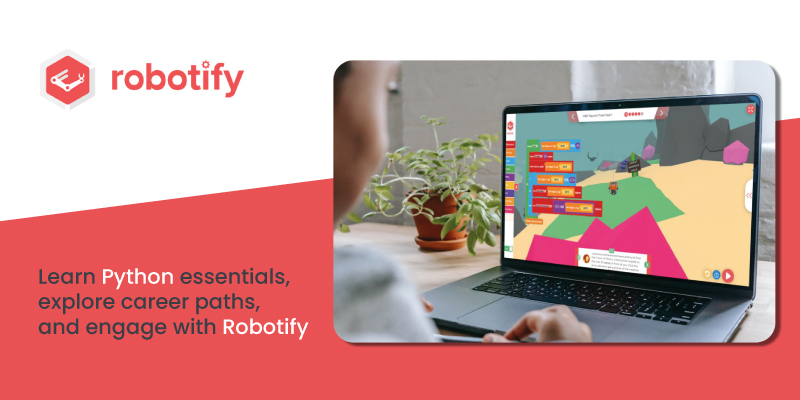Learn Python: Top 12 Informative Questions and Answers for Beginners
The world of coding can seem intimidating, but Python, a powerful yet beginner-friendly language, is a fantastic place to start! Whether you’re a curious student, a supportive parent, or someone new to programming, this blog post dives into a few commonly asked questions, making it easier to grasp the fundamentals and learn Python programming.
1. Explain what is Python programming?
Python is a general-purpose, high-level programming language identified for its clear and concise syntax. Unlike complex languages, Python reads almost like a natural language, making it easier to learn Python and understand it.
2. Why is Python popular for beginners?
- Readability: Python’s syntax uses simple keywords and indentation, making code look clear and organized.
- Free and Open-Source: Python is free to download and use, with a supportive community offering resources and guidance.
- Versatility: Python can be used for various activities, from web development to data science, making it a valuable skill.
- Large Libraries: Python offers a vast collection of libraries (pre-written code) for specific tasks, simplifying complex functionalities.
3. What are variables in Python?
Variables are like containers that hold data. You can give them names and assign values like numbers, text, or even lists. For example, age = 10 assigns the value 10 to the variable “age.”
4. What are data types in Python?
Data types specify the kind of information a variable can store. Regular data types include integers (whole numbers), floats (decimals), strings (text), and booleans (True or False).
5. How do you use comments in Python?
Comments are lines of text ignored by the computer but help humans understand the code. They start with a # symbol. For example, print (“Hello, Python!”) # This line prints a greeting. The sentence after the # is a comment for the coders’ reference.
6. What are operators in Python?
Operators perform calculations or comparisons on data. Examples include arithmetic operators (+, -, *, /) and comparison operators (==, !=, <, >).
7. What are loops in Python?
Loops allow you to repeat a particular code block several times or until a condition is met – ‘For’ loops and ‘While’ loops are most common.
8. What are conditional statements in Python?
Conditional statements (like if/else) enable the code to decide based on certain conditions. In the below example, the ‘if statement’ checks whether the variable age is higher than or equal to 20. If true, it prints, “You are eligible to vote.” If false, it goes to the else block and prints, “You are not eligible to vote yet.” Learn Python by understanding and experimenting with such decision-making structures.
# Conditional Statement Example
age = 20
if age >= 20:
print (“You are allowed to vote.”)
else:
print (“You are not allowed to vote yet.”)
9. What are lists in Python language?
Lists are identified as ordered collections of items that can hold different data types. You can access and modify elements using indexing and slicing. For instance, my_list = [1, “apple,” True] creates a list.
10. What are dictionaries in Python?
Dictionaries are unordered collections of key-value pairs. You can use keys to access and modify corresponding values. For example, my_dict = {“name”: “Bob,” “age”: 25} creates a dictionary. Learn Python by exploring and mastering data structures like dictionaries for efficient coding
11. Where can I learn Python?
Many excellent resources are available online and offline. Robotify offers a unique and engaging way for students aged 6+ years to learn Python programming fundamentals. Forget expensive hardware; Robotify utilizes a virtual 3D environment where you can code your robot through challenges and projects. This interactive platform makes learning fun and accessible, removing the barrier of physical hardware costs. Several schools in Dubai that have embraced the STEAM curriculum are leveraging Robotify’s engaging platform to introduce their students to coding.
12. What are some career paths using Python?
Learn Python to embark on a career as a web developer for interactive websites, a data scientist analyzing data, or a machine learning engineer building intelligent systems. Python’s versatility extends to software engineering for application development and automation engineering to optimize processes.
By exploring these questions and resources, you’ll be well on your way to learn Python efficiently! Remember, practice is critical. Start with small projects, experiment with code, be bold, and ask for help when needed. The Python community is incredibly supportive, and the learning journey can be fun and rewarding.






Recent Comments